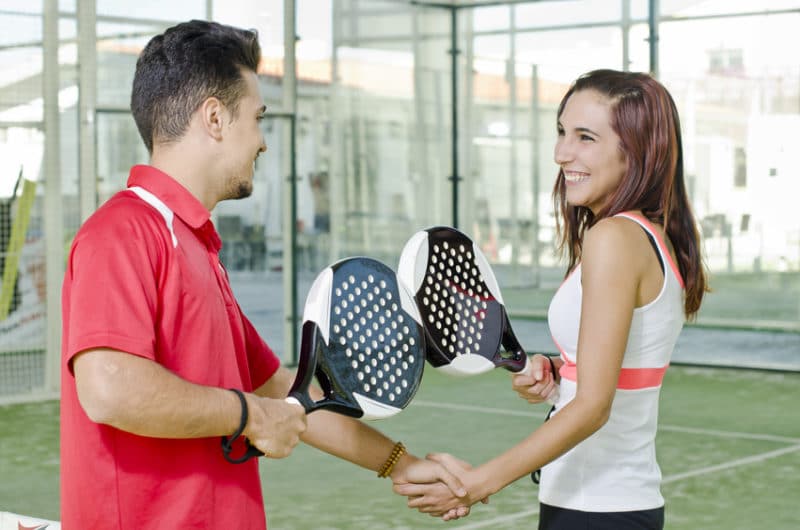During friendly matches and most amateur tournaments padel matches are played without an umpire. The qualifying rounds of World Padel Tour don’t have a referee either. This means that the players will have to judge certain things themselves in an amicable manner. Let’s talk about some of these things to keep an eye out for and how to behave.
If one of the players hits a shot whereby the ball hits another player, it is usual to apologize, while the person who got hit will acknowledge, knowing it’s part of the game.
At the start of the match it is usual to wish the other players a good match, and at the end all players are expected to approach the net and shake hands amicably, with both sides congratulating the others and thanking them for the match.
- Each player is responsible for all decisions in her half of the Court. She should be completely honest on all “calls” but, if in doubt, she should give her opponent the benefit of the doubt and play the ball as good. You should not play a let.
- It is your obligation to call all balls on your side, to help your opponent make calls when the opponent requests it, and to call against yourself (with the exception of a first service) any ball that you clearly see out on your opponent’s side of the net.
- Any “out”, “let” or “fault” call must be made immediately (ie. made before either an opponent has hit the return or the return has gone out of play); otherwise the ball continues in play. “Calls” must be verbal and clearly audible to the opponent, followed by a signal if necessary. “Lets” may be called by any of the participating players.
- On all court surfaces except clay (see (g) below) if a player incorrectly calls a ball “out” and then realises that the ball was good, the point should be replayed on the first occasion (involuntary hindrance) and the point lost on each subsequent occasion (deliberate hindrance). In the case of a point winning shot, a let would not be played.
- When returning service, the partner of the receiver should generally call the service line for her. The receiver should generally call the centre and side service lines.
- If players cannot agree on the score, they should calmly discuss the points/ games that are the areas of disagreement. If they cannot reach agreement they should replay only the points or games in question. All points or games which the players agree on stand eg. Two players cannot agree on whether the score is 40-15 or 30-30, but agree on the winner of the first, second and fourth points. Therefore only the third point needs to be replayed.
- Players are prohibited from checking the mark of the ball on their opponent’s side of the Court, unless invited by their opponent to do so. Ball mark inspections are only permitted on clay courts. On clay courts if a player incorrectly calls a ball “out” and then realises that the ball was good, the player who called “out” loses the point.
- Where a ball interrupts play, either by rolling/bouncing onto the court, and/or creating a visible interruption behind the court, a let should be played.
- If a player hinders her opponent it can be ruled involuntary or deliberate.
- When a player has created an involuntary hindrance (ball failing out of pocket, hat failing off, etc.) the first time a let should be called and the player should be told that any such hindrance thereafter will be ruled deliberate.
- Any hindrance caused by a player that is ruled deliberate will result in the loss of a point.
If there are any situations that you’re unsure about, let me know and I’ll do my best to clear any doubts.

